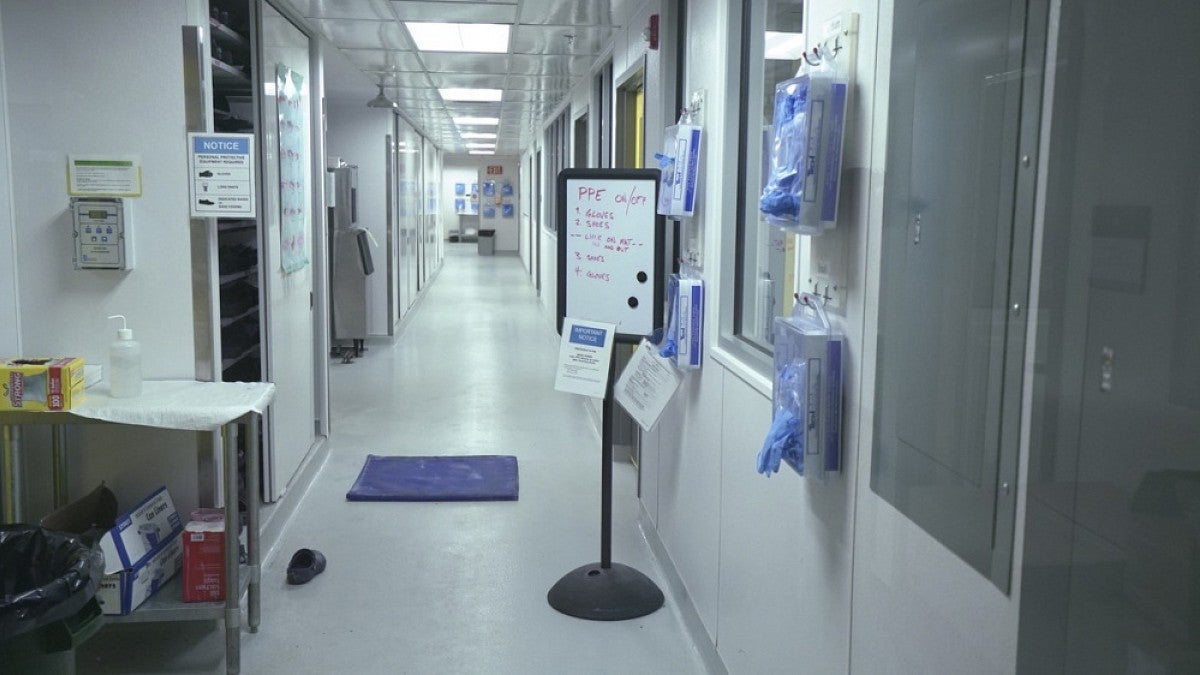On June 10, a day when scientists around the world stopped research activities to educate themselves and take action against systemic racism in science, the UO hosted an open forum that drew as many as 160 virtual attendees.
In anticipation of the day’s events, UO’s Division of Equity and Inclusion posted recommendations to the UO community on ways to be more informed and act in appropriately courageous ways. The Office of the Vice President for Research and Innovation hosted the online event.
The idea for the forum grew out of a movement encouraging researchers at universities around the world to pause for a day of reflection. Tien-Tien Yu, an assistant professor in the UO Department of Physics and a founding member of the group Particles for Justice, one of the main organizers of the national action, called on universities to address and rethink every aspect of their institutional structures, from hiring to recruitment to promotions.
“The first step is to acknowledge that there is a problem,” Yu said. “It really is an institutional problem and nothing’s going to change until institutions change the way they are structured.”
Describing the open forum as the first of many such sessions, David Conover, vice president for research and innovation, encouraged attendees to talk openly about how research universities have failed to promote equality in research communities and think about what the UO can do to welcome greater diversity into labs and research spaces and end systemic racism in research and innovation.
“This is an opportunity to listen, reflect and discuss,” Conover said. “It is incumbent on us as human beings to learn more about the black experience because from that comes empathy and from empathy comes understanding.”
The audience included UO faculty members and staff and the discussion ranged from the question of how the UO can apply for more research grants with diversity supplements to what resources the university can provide to help learn about the experiences of black students in science, technology, engineering and math. In one discussion, people addressed the question of how to change a culture in which science often overshadowed social issues and many did not feel comfortable discussing race with their students or colleagues.
Provost and Senior Vice President Patrick Phillips attended the session. He reflected on some of his own conversations with students since the murder of George Floyd by a police officer in Minneapolis and stressed the importance of listening. He called for concrete action and encouraged UO faculty members and staff to think about what the next steps might be to address inequities and racism in research and innovation.
“One thing that I’ve learned over the years is thinking that we know the answer is the wrong approach,” Phillips said. “There’s only one answer and that’s to listen to those whose lived experience we are trying to address and overcome and remove barriers moving forward, and I know this is a priority to this community.”
Some of the solutions proposed during the forum included an auditing of all UO materials to identify ways to better integrate anti-racism practices and discussions, a plea for the university to hire more black faculty members and hold more workshops and trainings, and a call to provide more programs designed to increase diversity among future leaders in science, technology, engineering and related fields.
The forum also offered a place to share personal experiences and reflect on some of the frustrations of confronting racism. One faculty member shared an email from a black undergraduate student who applied to work in multiple research labs and was rejected while his white counterparts all found assignments in those same labs.
A discussion of whether race could be ignored sparked a debate surrounding the concept of “color blindness.” Other phrases such as “white fragility” emerged from the conversation and the need for self-education on the part of all members of the UO research community came up repeatedly.
The forum came to a close with the acknowledgement that much more needed to be done. Conover described the forum as the beginning of a long conversation that would need to result in action in order to be successful.
“It’s not enough to merely pledge our support,” Conover said. “This is an opportunity for us to address institutionalized racism head on, to confront the inequalities embedded in our institutions and come to terms with the outrage, frustration, hurt and despair that has been simmering for far too long.”
By days end, Particles for Justice had received pledges from more than 5,700 academics around the world agreeing to focus on protecting black lives and ending systemic racism in academia. Yu was quoted in a Wired Magazine article and other publications and the movement drew coverage from numerous outlets, including the New York Times, CBS and Gizmodo.
Yu pointed to a message from a former student thanking her for giving him courage to take a stance as her prime motivation for her involvement in the movement.
“I would like to be that example of how I would like things to change, and hearing from this student confirmed that,” Yu said. “These are the people, the next generation, who are really going to make a difference.”


